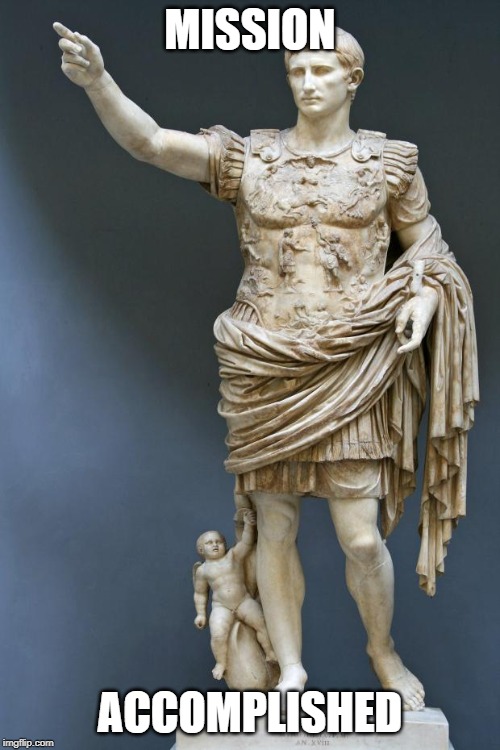
Originally Posted by
Abdülmecid I

I agree completely about the hesitations of Rome to add new territories to its empire, but I still believe that Cleopatra had no choice. The problem was that the circumstances had gradually changed every since the Marian reforms were implemented. As ambitious generals gained more power over their professional armies, the foreign policy of Rome evolved accordingly, even despite the objections of the Senate. Military commanders now enjoyed more freedom and were often allowed to pursue a more personal policy, not hesitating to casually provoke conflicts with neutral neighbors and annex new territories. The reasons for this shift of policy are exactly what you described above: As the Senators were afraid of the possibility of a governor accumulating too many resources, so were the generals motivated to expand their sphere of influence, by installing obedientl governors to recently conquered regions, by stabilising the throne of now completely dependent client-kings and by positioning friendly tyrants to nominally autonomous cities. Not to mention the fact that loot and military glory guaranteed the loyalty of their troops in times of need. All these assets would come very handy, when a civil war broke out and the Roman general attempted to usurp the ultimate power.
Now, to come back to the subject, a series of semi-successful imperialist strongmen, from Marius and Sulla to Crassus, Pompey and Ceasar had indicated to Cleopatra that the good, old times of senatorial conservatism were over. Whoever emerged as the final victor from the second Triumvirate, Octavian, Mark Anthony, Lepidus or even Sextus "Pirate" Pompey, the days of an independent Lagid dynasty were few. Neutrality was frankly not an option, because it would have saved the kingdom, according to the most optimistic scenario, as long as the Roman Empire remained fragmented. Once the Empire was reunited (an inevitable result, in my opinion), the new dictator/emperor/Augustus would hardly hesitate to invade the wealthy Nile valley. It would have been an easy campaign, which would reinforce his prestige, restore the finances of the state and provide him with a precious basis of support for his fragile and precarious position as the "absolute monarch" of the empire. Cleopatra was obliged to join one of the two camps, in order to have a chance to save her royal career. Unluckily enough for her, she bet on the wrong horse.














 Reply With Quote
Reply With Quote





















 The Latin poets during the reign of Augustus were sometimes sympathetic to her, showing that Augustus had not completely destroyed her image and that there were still a variety of opinions, but they generally painted a rather ridiculous picture of her as being an exotic sorceress who bewitched Antony with witchcraft and planned on toppling good honest Roman gods with animal headed ones, "furries" basically.
The Latin poets during the reign of Augustus were sometimes sympathetic to her, showing that Augustus had not completely destroyed her image and that there were still a variety of opinions, but they generally painted a rather ridiculous picture of her as being an exotic sorceress who bewitched Antony with witchcraft and planned on toppling good honest Roman gods with animal headed ones, "furries" basically. 






